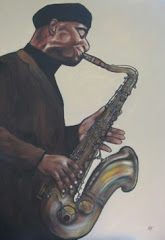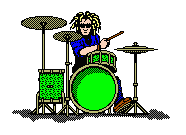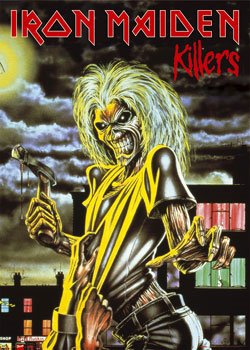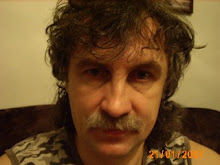



Manfred Mann was a British Beat, R&B and pop band of the 1960s, named after its South African keyboard player and founder, who later led the successful 1970s follow-on group Manfred Mann's Earth Band.
Beginnings 1962–1963
The Mann-Hugg Blues Brothers (as the band were originally called) were formed in London in December 1962 by keyboard player Manfred Mann and drummer/vibes player Mike Hugg. Born out of the British blues boom then sweeping London's clubs (which also spawned the Rolling Stones and the Yardbirds), the band was completed by Mike Vickers on lead guitar, Dave Richmond on bass, and Paul Jones fronting as lead vocalist and harmonica player; by this point, they had changed their name into Manfred Mann & The Manfreds. Gigging constantly throughout late 1962 and early 1963, the band soon attracted attention for their distinctive sound propelled by Mann's keyboards, Jones' soulful vocals and an occasional horn section. The group signed to HMV Records in March 1963 after a change of name to Manfred Mann (at the suggestion of their label's producer), and debuted in July of that year with the jazzy instrumental single "Why Should We Not?", which failed to chart, as did the follow up (with vocals this time), "Cock-A-Hoop"
Early success 1964–1965
In 1964, the group was asked to provide a new theme tune for the ITV pop music TV series Ready Steady Go!. They responded with the energetic "5-4-3-2-1" which, with the help of weekly TV exposure, rose to No.5 in the UK charts. It was shortly after "5-4-3-2-1" was recorded that Richmond left the band,[1] being replaced by Tom McGuinness - the first of many line-up changes. After a further self-penned hit ("Hubble Bubble (Toil And Trouble)") the band struck gold with "Do Wah Diddy Diddy", a cover of a minor hit earlier that year by the Exciters. The track, which showcased Jones' powerful singing, reached the top of both the UK and U.S. charts (The Exciters version had only charted #78 in the U.S.).
During 1965, the group continued to have hits with both self-penned and cover material, their sound increasingly moving away from the blues-based music of their early years to a highly successful pop-soul hybrid. Notably the group began to have success with interpretations of Bob Dylan songs, including "With God on Our Side" as a track on a best-selling EP. They also reached No.2 in the UK with the controversial "If You Gotta Go, Go Now", which was banned or edited by a number of TV and radio stations. Prior to this latter release, Paul Jones announced his intention to quit the band for a solo career once a replacement could be found.
The Mike d'Abo years 1966–1969
Jones stayed with the band for one more year, during which time Mike Vickers was replaced by Jack Bruce of John Mayall's Bluesbreakers (long enough to play bass on the band's second UK No.1 single "Pretty Flamingo"). Jones was eventually replaced by Mike d'Abo - among those on the shortlist was Rod Stewart - and this was one of the few occasions when a band has successfully swapped lead singers and remained at the top. Jack Bruce left to form Cream and was replaced by Klaus Voorman (a longtime Beatles associate), with McGuinness moving to guitar. To complete the changes, the group switched labels to Fontana Records.
With d'Abo as vocalist, the group pursued a softer acoustic pop sound, with a tinge of Dylanesque social comment and surrealism in the lyrics. Their first Fontana Records single was another Dylan cover, "Just Like A Woman". Chart success was uneven for a while, with "Semi-Detached, Suburban Mr James" and "Ha Ha Said The Clown" both going Top 5, but an instrumental "Sweet Pea" only No. 36 and "So Long Dad" missing the Top 50 altogether. However they scored a third No. 1 in 1968 with yet another Dylan song, "Mighty Quinn".
Frustrated with the limitations and image of being seen purely as a hit singles band (their last two albums failed to chart), the group split in 1969, while their final hit, "Ragamuffin Man", was in the Top 10.
1970s and on—Manfred Mann's Earth Band
Mann went on to write advertising jingles after the group's demise, but still continued to work in the group format. Initially he formed Manfred Mann Chapter Three (with Mike Hugg), an experimental jazz rock band, described by Mann as an over reaction to the hit factory of the Manfred Mann group.[2] This was, however, short lived and by 1971 they had disbanded and Mann had formed a new group, Manfred Mann's Earth Band.
For further details, see Manfred Mann's Earth Band.
1990s and on—the Manfreds
In the 1990s, most of the original 1960s line-up reformed as The Manfreds, minus Manfred Mann himself (hence the name), playing most of the old 1960s hits and a few jazz instrumentals, sometimes with both Paul Jones and Mike d'Abo fronting the line-up.
At the same time, Jones and Tom McGuinness (McGuinness formed McGuinness Flint in 1970, but they disbanded in 1975) have been mainstays of The Blues Band (which they helped form in 1978).
Personnel
The current lineup of The Manfreds is highlighted in bold.
Mike Hugg - drums, vibes, keyboards - (Manfred Mann 1962—1969 - founding member) (The Manfreds 1991—present)
Mike d'Abo - vocals, keyboards - (Manfred Mann 1966—1969) (The Manfreds 1991—present)
Paul Jones - vocals, harmonica - (Manfred Mann 1962—1966 - founding member) (The Manfreds 1991—present)
Tom McGuinness - guitar, bass - (Manfred Mann 1964—1969) (The Manfreds 1991—present)
Rob Townsend - drums, percussion - (The Manfreds 1991—present)
Marcus Cliffe - bass - (The Manfreds 1999—present)
Manfred Mann - keyboards - - (Manfred Mann 1962—1969 - founding member)
Mike Vickers - guitar, alto sax, flute - (Manfred Mann 1962—1965 - founding member)
Dave Richmond - bass - (Manfred Mann 1962—1964 - founding member)
Jack Bruce - bass - (Manfred Mann 1965—1966)
Klaus Voorman - bass - (Manfred Mann 1966—1969)
Benny Gallagher - bass - (The Manfreds 1991—1999)
The Mann-Hugg Blues Brothers (as the band were originally called) were formed in London in December 1962 by keyboard player Manfred Mann and drummer/vibes player Mike Hugg. Born out of the British blues boom then sweeping London's clubs (which also spawned the Rolling Stones and the Yardbirds), the band was completed by Mike Vickers on lead guitar, Dave Richmond on bass, and Paul Jones fronting as lead vocalist and harmonica player; by this point, they had changed their name into Manfred Mann & The Manfreds. Gigging constantly throughout late 1962 and early 1963, the band soon attracted attention for their distinctive sound propelled by Mann's keyboards, Jones' soulful vocals and an occasional horn section. The group signed to HMV Records in March 1963 after a change of name to Manfred Mann (at the suggestion of their label's producer), and debuted in July of that year with the jazzy instrumental single "Why Should We Not?", which failed to chart, as did the follow up (with vocals this time), "Cock-A-Hoop"
Early success 1964–1965
In 1964, the group was asked to provide a new theme tune for the ITV pop music TV series Ready Steady Go!. They responded with the energetic "5-4-3-2-1" which, with the help of weekly TV exposure, rose to No.5 in the UK charts. It was shortly after "5-4-3-2-1" was recorded that Richmond left the band,[1] being replaced by Tom McGuinness - the first of many line-up changes. After a further self-penned hit ("Hubble Bubble (Toil And Trouble)") the band struck gold with "Do Wah Diddy Diddy", a cover of a minor hit earlier that year by the Exciters. The track, which showcased Jones' powerful singing, reached the top of both the UK and U.S. charts (The Exciters version had only charted #78 in the U.S.).
During 1965, the group continued to have hits with both self-penned and cover material, their sound increasingly moving away from the blues-based music of their early years to a highly successful pop-soul hybrid. Notably the group began to have success with interpretations of Bob Dylan songs, including "With God on Our Side" as a track on a best-selling EP. They also reached No.2 in the UK with the controversial "If You Gotta Go, Go Now", which was banned or edited by a number of TV and radio stations. Prior to this latter release, Paul Jones announced his intention to quit the band for a solo career once a replacement could be found.
The Mike d'Abo years 1966–1969
Jones stayed with the band for one more year, during which time Mike Vickers was replaced by Jack Bruce of John Mayall's Bluesbreakers (long enough to play bass on the band's second UK No.1 single "Pretty Flamingo"). Jones was eventually replaced by Mike d'Abo - among those on the shortlist was Rod Stewart - and this was one of the few occasions when a band has successfully swapped lead singers and remained at the top. Jack Bruce left to form Cream and was replaced by Klaus Voorman (a longtime Beatles associate), with McGuinness moving to guitar. To complete the changes, the group switched labels to Fontana Records.
With d'Abo as vocalist, the group pursued a softer acoustic pop sound, with a tinge of Dylanesque social comment and surrealism in the lyrics. Their first Fontana Records single was another Dylan cover, "Just Like A Woman". Chart success was uneven for a while, with "Semi-Detached, Suburban Mr James" and "Ha Ha Said The Clown" both going Top 5, but an instrumental "Sweet Pea" only No. 36 and "So Long Dad" missing the Top 50 altogether. However they scored a third No. 1 in 1968 with yet another Dylan song, "Mighty Quinn".
Frustrated with the limitations and image of being seen purely as a hit singles band (their last two albums failed to chart), the group split in 1969, while their final hit, "Ragamuffin Man", was in the Top 10.
1970s and on—Manfred Mann's Earth Band
Mann went on to write advertising jingles after the group's demise, but still continued to work in the group format. Initially he formed Manfred Mann Chapter Three (with Mike Hugg), an experimental jazz rock band, described by Mann as an over reaction to the hit factory of the Manfred Mann group.[2] This was, however, short lived and by 1971 they had disbanded and Mann had formed a new group, Manfred Mann's Earth Band.
For further details, see Manfred Mann's Earth Band.
1990s and on—the Manfreds
In the 1990s, most of the original 1960s line-up reformed as The Manfreds, minus Manfred Mann himself (hence the name), playing most of the old 1960s hits and a few jazz instrumentals, sometimes with both Paul Jones and Mike d'Abo fronting the line-up.
At the same time, Jones and Tom McGuinness (McGuinness formed McGuinness Flint in 1970, but they disbanded in 1975) have been mainstays of The Blues Band (which they helped form in 1978).
Personnel
The current lineup of The Manfreds is highlighted in bold.
Mike Hugg - drums, vibes, keyboards - (Manfred Mann 1962—1969 - founding member) (The Manfreds 1991—present)
Mike d'Abo - vocals, keyboards - (Manfred Mann 1966—1969) (The Manfreds 1991—present)
Paul Jones - vocals, harmonica - (Manfred Mann 1962—1966 - founding member) (The Manfreds 1991—present)
Tom McGuinness - guitar, bass - (Manfred Mann 1964—1969) (The Manfreds 1991—present)
Rob Townsend - drums, percussion - (The Manfreds 1991—present)
Marcus Cliffe - bass - (The Manfreds 1999—present)
Manfred Mann - keyboards - - (Manfred Mann 1962—1969 - founding member)
Mike Vickers - guitar, alto sax, flute - (Manfred Mann 1962—1965 - founding member)
Dave Richmond - bass - (Manfred Mann 1962—1964 - founding member)
Jack Bruce - bass - (Manfred Mann 1965—1966)
Klaus Voorman - bass - (Manfred Mann 1966—1969)
Benny Gallagher - bass - (The Manfreds 1991—1999)
DISOGRAPHY MANFRED MANN´S EARTH BAND :
+++++++++++++++++++++++++++++++++++++
Glorified Magnified
Polydor
1972
Manfred Mann's Earth Band
Bronze
1972
Messin'
Vertigo
1973
Solar Fire
Bronze
1973
The Good Earth
Bronze
1974
1971 - 1973
Fontana
1975
Nightingales & Bombers
Bronze
1975
The Roaring Silence
Bronze
1976
Watch
Bronze
1978
Angel Station
Bronze
1979
Chance
Bronze
1980
Somewhere In Africa
Bronze
1982
Criminal Tango (Manfred Mann's Earth Band with Chris Thompson)
Virgin
1986
Masque
Virgin
1987
20 Years Of Manfred Mann's Earth Band - 1971-1991
Creature
1990
Plain Music (Manfred Mann's Plain Music)
Intuition
23.10.1991
Blinded By The Light - The Very Best Of
Arcade
1992
Soft Vengeance
Grapevine
1996
2006 (Manfred Mann 06 with Manfred Mann's Earth Band)
Edel
25.10.2004
Budapest Live
Ariola
Hodnotím : Roaring Silence ***** , Somewhere In Africa *****




































































































Žádné komentáře:
Okomentovat